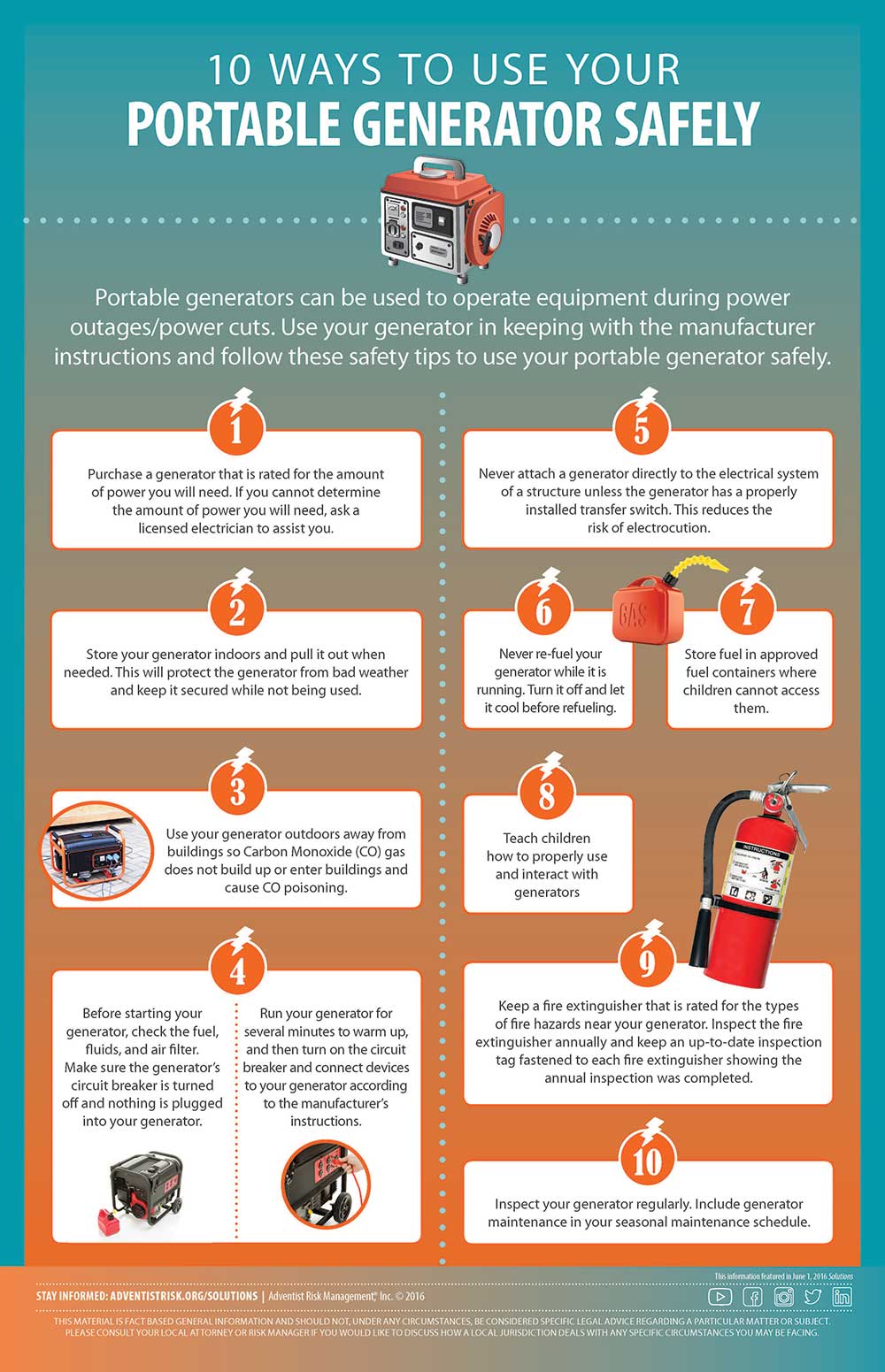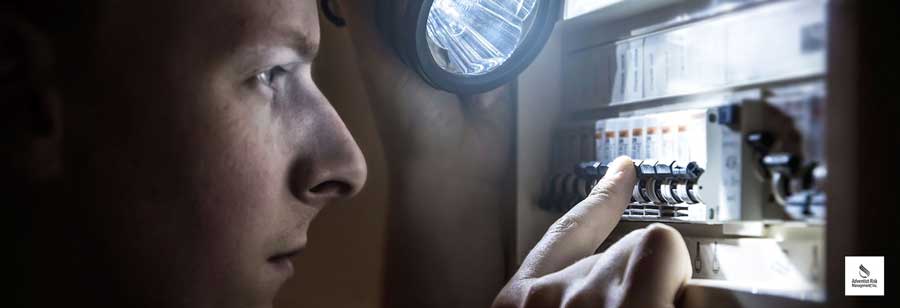Is Your Facility Prepared?
Storms, high winds, and extreme weather can cause items such as tree limbs to come in contact with and either short out or break power lines. Ice from winter storms can build up and bring down power lines and floods, vehicle and construction accidents or animals can damage electrical equipment and cause the power to shut off. Situations where many people are using higher amounts of energy than normal at the same time, such as during heat waves, extreme cold, and even church events can also cause power outages.Here’s what you can do to prepare your local church and school for the next power outage.
Before the power goes out
Have an Emergency Plan for Your Church or SchoolInclude preparing for power outages in your church or school’s emergency response plan. Make sure you have a:
- portable radio (battery-operated or hand-operated),
- supply of water and non-perishable food items,
- stocked first aid kit including medicine and
- flashlights with extra batteries,
- proper emergency and lighted exits signs with battery backup
Use Your Generators Safely
If your church or school owns a generator for use during a power outage, here are some safety guidelines to keep in mind.

Reduce The Amount of Power You Use
Minimize the use of power by:
- Keeping unused rooms closed and locked.
- Unplugging devices and equipment when not being used.
- Turning off lights in unused areas.
- Switching to Compact Fluorescent Lamp light bulbs, and
- Setting air conditioning and heating units to only heat or cool rooms when needed.
Keep trees on your church or school property healthy and trimmed, so they do not lose a limb or rot out and fall on power lines or equipment.
After the Power Goes Out
Report ItIf you are at church or school and the power goes out and does not come back on within 10 minutes, check your circuit breakers or fuses to see if the outage is within your facility. If it is not, report the outage to your power provider right away.
Turn out the Lights
Turn off any lights, appliances, and electronics, including your heating and air conditioning systems, to prevent a circuit overload when the power comes back on. This also reduces the risk of fire or damage to your equipment. With power restored, wait 5-10 minutes before turning appliances back on.
Stay Safe in Severe Weather
If you are at church or school and experience a power outage during severe weather, stay inside until it is safe to return home.
Stay Away from Downed Power Lines
Avoid contact with downed or sagging power lines and anything that is touching them. The lines can still carry electrical current and be dangerous. Do not touch them and do not allow children or pets near them. Immediately report any downed power lines you see to your power provider and local authorities.


